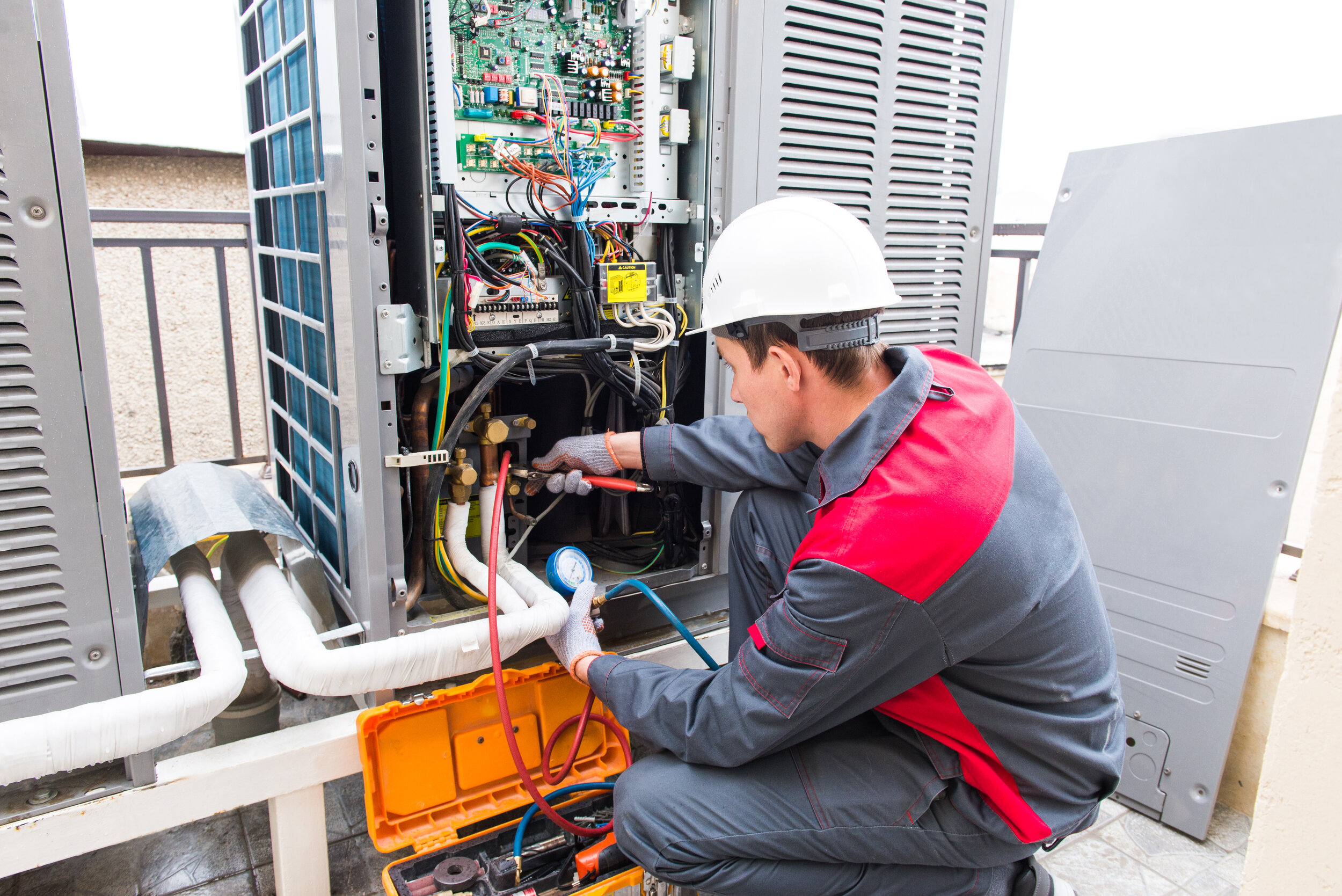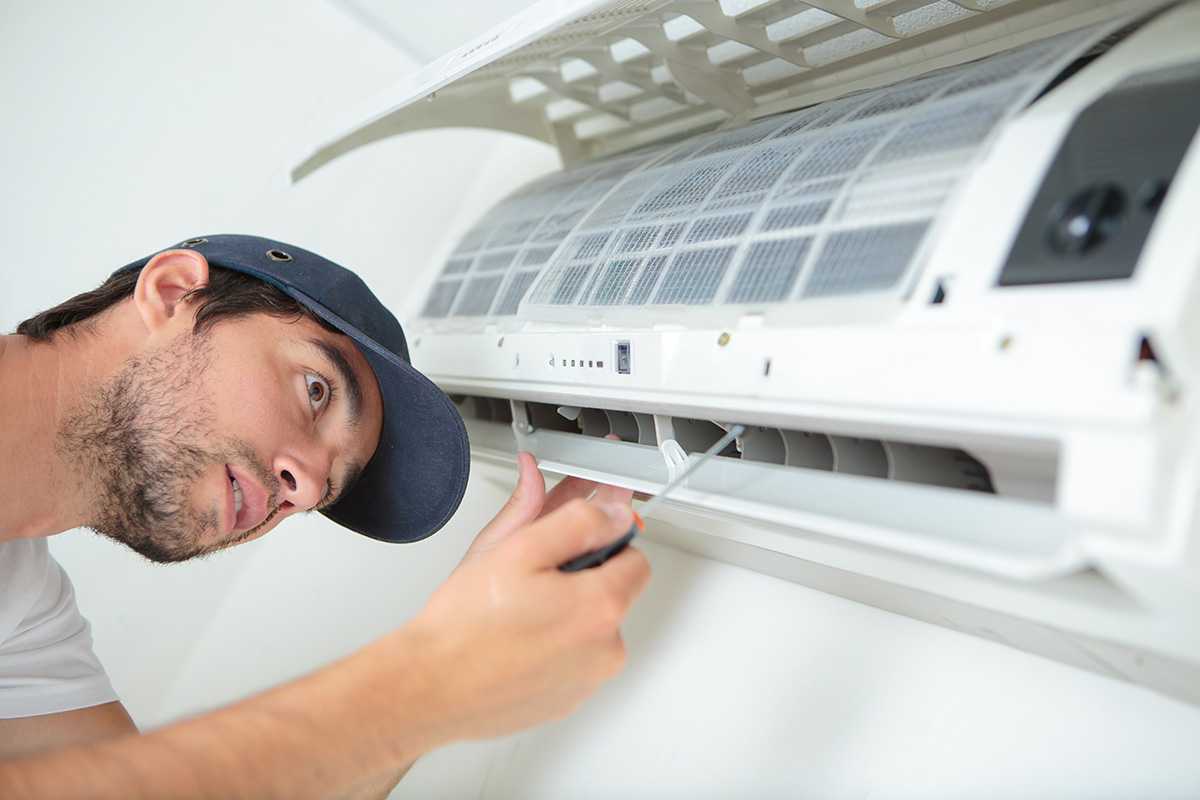We often take our home’s heating and cooling systems for granted—until they stop working. An HVAC system (Heating, Ventilation, and Air Conditioning) is an essential part of creating a comfortable living environment. However, like any major home appliance, it requires regular maintenance to ensure its longevity and efficiency. In this blog, we’ll explore why regular HVAC maintenance is crucial for both your comfort and your wallet.
What Happens When You Skip HVAC Maintenance?
Your HVAC system is one of the most complex pieces of equipment in your home, responsible for regulating temperature, humidity, and air quality. Neglecting regular maintenance can result in a variety of problems:
-
Increased Energy Bills: When your HVAC system isn’t properly maintained, it has to work harder to heat or cool your home, leading to higher energy consumption. Dirty filters, clogged coils, or low refrigerant levels can reduce efficiency by up to 30%, significantly increasing your utility bills.
-
Reduced Lifespan of Your System: A neglected HVAC system will wear out much faster. Regular maintenance can extend the life of your equipment by identifying and addressing small issues before they cause major breakdowns.
-
Frequent Breakdowns: Over time, dirty or damaged components can cause your system to fail completely. This could mean unexpected and costly repairs. In some cases, a well-maintained system may avoid expensive parts replacements.
-
Poor Air Quality: Your HVAC system is responsible for filtering the air in your home. If not properly maintained, it can distribute dust, dirt, and allergens throughout your living space, worsening your indoor air quality. This could be particularly problematic for those with allergies or respiratory issues.
-
Inconsistent Comfort: A poorly maintained HVAC system can lead to inconsistent temperatures in different parts of your home. Some rooms may feel too cold, while others may be too hot. This can affect your comfort and may also result in uneven humidity levels.
Key Benefits of Regular HVAC Maintenance
-
Improved System Efficiency: Regular maintenance ensures that your HVAC system is running at peak efficiency. This reduces the workload on your unit, which in turn helps save on energy costs and provides consistent heating or cooling.
-
Cost Savings: While regular maintenance does come with a small cost, it’s far less than the price of an emergency repair or system replacement. Detecting issues early can prevent expensive repairs or the need for a complete system overhaul.
-
Enhanced Indoor Air Quality: When your HVAC system is cleaned and maintained regularly, it removes airborne pollutants, allergens, and dust particles. This leads to cleaner, healthier air, which is especially important for anyone with respiratory issues, such as asthma.
-
Prevention of Costly Breakdowns: By scheduling regular tune-ups, technicians can spot minor issues and address them before they turn into major problems. This helps prevent sudden breakdowns, especially during extreme temperatures when you need your HVAC system most.
-
Increased Comfort: A well-maintained HVAC system ensures that your home stays comfortable all year long. Whether it’s cooling your home in the summer or heating it during the winter, you’ll enjoy consistent temperature control throughout your home.
What Does HVAC Maintenance Include?
Professional HVAC maintenance usually involves the following steps:
-
Inspection: The technician will inspect your system for any signs of wear and tear, damage, or malfunctioning parts.
-
Cleaning: Dust, dirt, and debris can build up in your HVAC system. Cleaning components like air filters, coils, and ducts improves airflow and efficiency.
-
Lubrication: Parts like motors and fans often require lubrication to prevent friction and wear. Proper lubrication ensures smooth operation.
-
Refrigerant Levels Check: Low refrigerant levels can reduce the system’s efficiency and lead to further issues. A technician will check and recharge the refrigerant if necessary.
-
Thermostat Calibration: The technician will check the accuracy of your thermostat and adjust it if necessary. Proper thermostat calibration ensures that your system maintains the desired temperature efficiently.
-
System Testing: The technician will run your system to check for any unusual noises, vibrations, or malfunctions, ensuring that it’s operating at its best.
How Often Should You Schedule HVAC Maintenance?
HVAC professionals recommend scheduling a full inspection and tune-up for your system twice a year:
-
Spring (before the cooling season): To ensure your air conditioning system is ready for the warmer months.
-
Fall (before the heating season): To get your heating system in shape for winter.
Additionally, if you notice any performance issues or irregularities between these seasonal checks, it’s a good idea to call in a technician for an inspection.
How to Choose the Right HVAC Maintenance Plan
To ensure regular maintenance, many homeowners opt for a service contract with an HVAC provider. Service contracts typically include the following benefits:
-
Priority service during peak seasons
-
Discounts on repairs or replacement parts
-
Regular inspections and cleaning
-
Extended warranties on parts or labor
Look for a provider that offers a comprehensive maintenance plan that suits your needs and budget.
Conclusion:
Regular HVAC maintenance is essential to ensuring that your system performs efficiently, lasts longer, and provides consistent comfort throughout the year. By addressing minor issues early, you can avoid costly repairs, reduce energy bills, and improve the overall air quality in your home. Scheduling routine maintenance is a small investment that can lead to big savings in the long run.



